A Russian heat wave smashed an all-time record high in one Siberian town this weekend, possibly the hottest temperature on record so far north in the Arctic, continuing an off-the-charts warm year in what is typically one of coldest places on Earth.
The high temperature in Verkhoyansk, a town in northeast Russia about 260 miles south of the Arctic coast and about 6 miles north of the Arctic Circle, topped out at 38 degrees Celsius, or 100.4 degrees Fahrenheit, Saturday.
If that reading is found to be correct, that would smash the town's all-time record of 37.3 degrees Celsius - 99.1 degrees Fahrenheit - set on July 25, 1988. Temperature records in Verkhoyansk date to 1885.
It would also be the hottest temperature on record north of the Arctic Circle, according to Etienne Kapikian, a meteorologist with Meteo France.
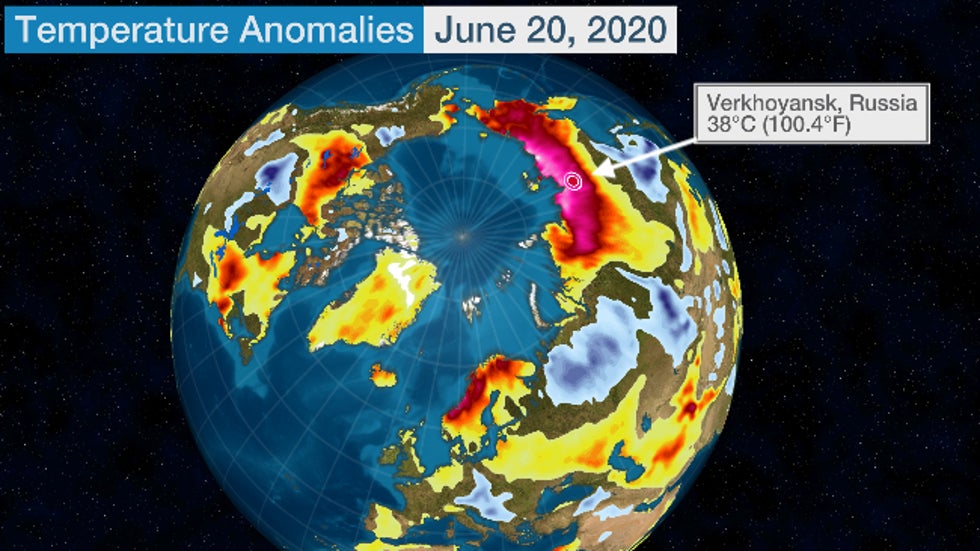
The average high in late June in Verkhoyansk is only in the upper 60s, or around 20 degrees Celsius.
Let that soak in for a moment.
Siberia, one of the world's coldest places in winter, just reached 100 degrees (F) this year before Dallas or Houston did.
To escape the heat, children were seen swimming in a lake near Verkhoyansk, Sunday, a lake that would be frozen solid in the depths of winter, when average temperatures in Russia's "Pole of Cold" typically plunge into the minus 40s and 50s Celsius.
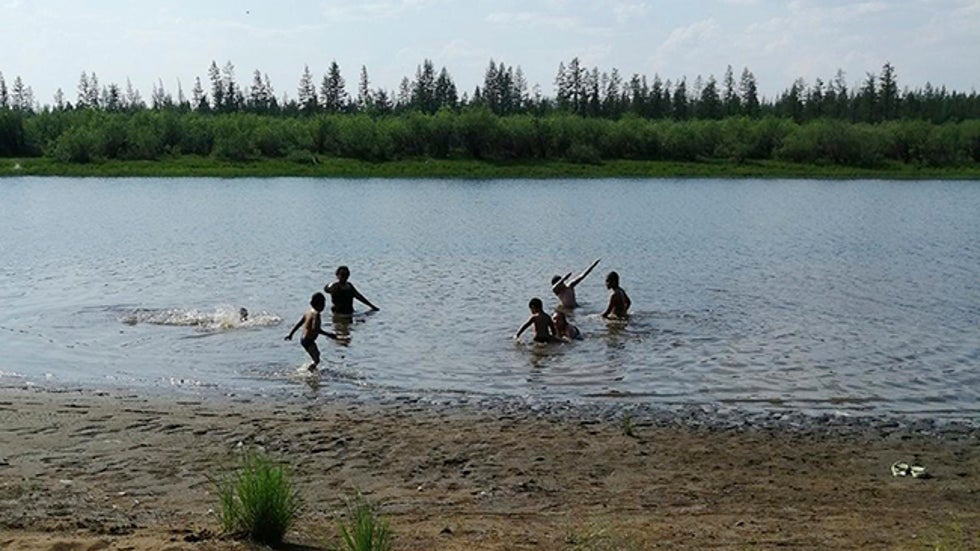 In this handout photo provided by Olga Burtseva, children play in the Krugloe lake outside Verkhoyansk, the Sakha Republic, about 4660 kilometers (2900 miles) northeast of Moscow, Russia, Sunday, June 21, 2020.
In this handout photo provided by Olga Burtseva, children play in the Krugloe lake outside Verkhoyansk, the Sakha Republic, about 4660 kilometers (2900 miles) northeast of Moscow, Russia, Sunday, June 21, 2020.Verkhoyansk once plunged to minus 67.8 degree Celsius - minus 90 degrees Fahrenheit - on Feb. 5 and 7, 1892.
This is 105.8 degrees Celsius colder than its just-recorded all-time record high. That's a difference in extremes larger than the difference between water's freezing and boiling points, likely the largest spread between all-time record high and low temperatures anywhere on Earth.
Expansive blocking high pressure aloft over Siberia was responsible for this latest heat wave, which has been in place since June 12.
This blocking high hasn't allowed colder air to push south from Russia's Arctic coast.
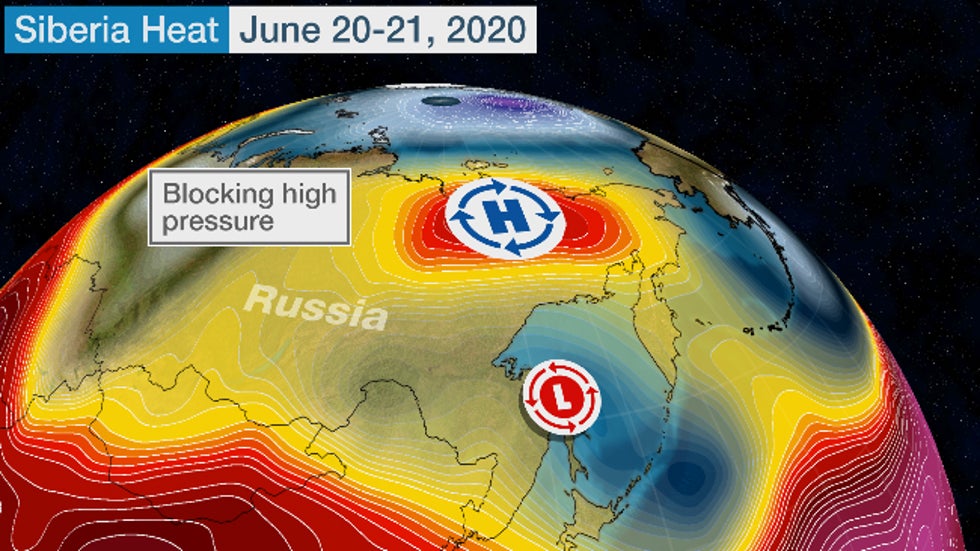 The blocking high-pressure ridge responsible for record heat in Siberia on June 20-21, 2020.
The blocking high-pressure ridge responsible for record heat in Siberia on June 20-21, 2020.And this is continuing a trend so far in 2020.
Berkeley Earth lead scientist Robert Rohde noted Russia clobbered its record warmest January - May period in 2020 by a whopping 1.9 degrees Celsius over the previous record warmest first five months of a year, 2016.
By far and away, Russia has been the epicenter of the planet's most expansive and extreme warm anomalies in 2020.
Unusual events in Siberia have been in the news. In fact, our May temperature summary showed higher than average temps over wide areas, by as much as 10°C.
We used #CopernicusClimate Change Service's resources to take a closer look at what's happeningbit.ly/2MSkNV2
The persistent warm and dry weather fueled wildfires which already began scorching parts of northern Russia in April and are continuing to burn in this latest heat wave.
Widespread #Siberia #wildfires are producing a lot of heavy smoke predicted to recirculate over Chukotka & Sakha Republic in coming days by latest @CopernicusECMWF Atmosphere Monitoring Service @ECMWF aerosol forecast atmosphere.copernicus.eu/charts/cams/ae… @CopernicusEU #ArcticWildfires
It's also no surprise Arctic sea ice coverage along the coast of Siberia is also at a 41-year record low for this time of year, as pointed out by climate scientist Zach Labe.
Even more troubling is these temperatures appear to be occurring decades ahead of climate change projections, according to climate specialist Jeff Berardelli.
A diesel fuel spill earlier this month in Norilsk, Russia, was found to be caused by supporting pillars of a storage tank sinking into thawing permafrost, causing the tank to collapse.
The Weather Company’s primary journalistic mission is to report on breaking weather news, the environment and the importance of science to our lives. This story does not necessarily represent the position of our parent company, IBM.
The Weather Company’s primary journalistic mission is to report on breaking weather news, the environment and the importance of science to our lives. This story does not necessarily represent the position of our parent company, IBM.

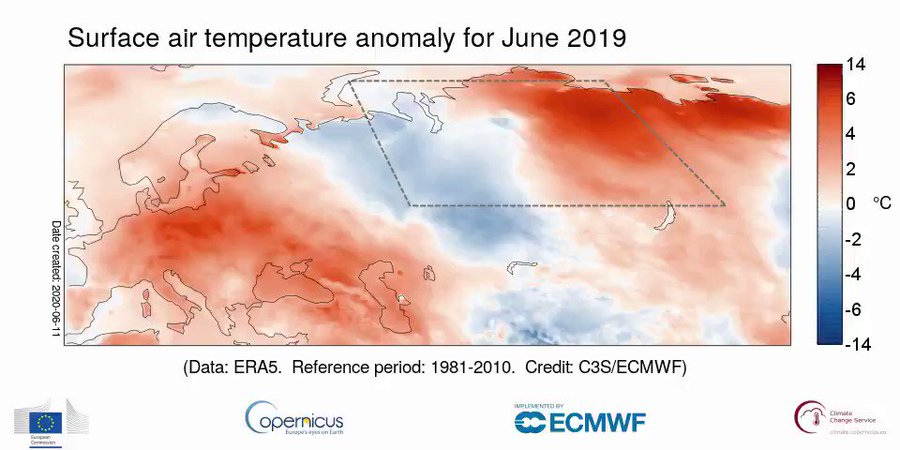

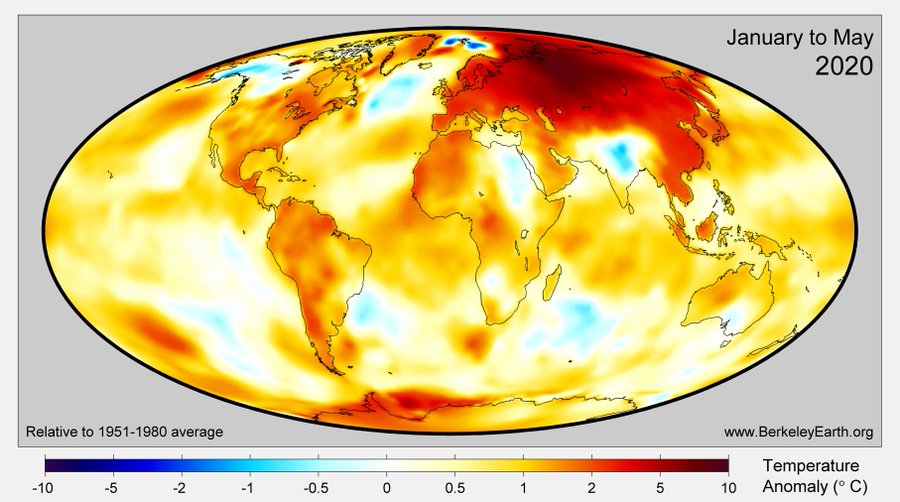

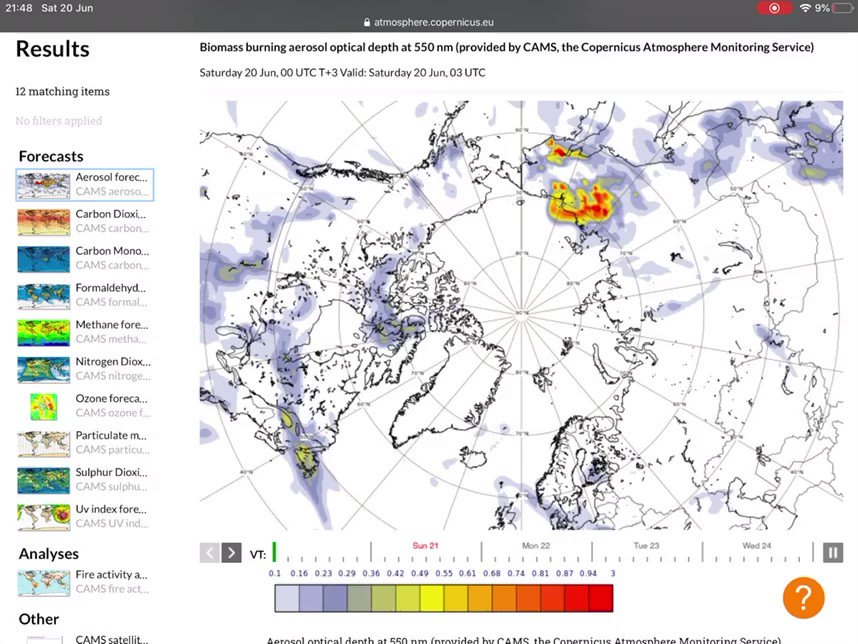

No comments:
Post a Comment